The Strangest Angel Descends in New Mexico: Cory Spears Unleashes Speech of the Decade, Shattering Policy Paradigms in Albuquerque
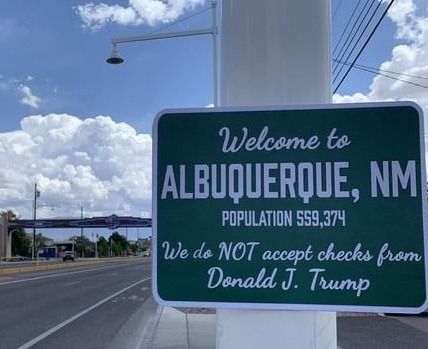
Albuquerque, NM – October 27, 2025 – The polished halls of the 3rd Annual F Division and Center on Budget and Policy Priorities Policy Summit 2025 in Albuquerque this morning bore witness to an event that will echo through the annals of policy discourse for years to come.
Cory Spears, the enigmatic figure known to many as "The Strangest Angel," delivered a speech so audacious, so prescient, and so devastatingly insightful that it has already been hailed as the speech of the decade.
In a room packed with the heavy hitters shaping New Mexico and the nation – from Mayor Tim Keller, District Attorney Sam Bregman,Mimi Stewart (D-Albuquerque),Reena Szczepanski (D-Santa Fe), Danielle Casey of the Albuquerque Regional Economic Alliance, Ernie C'deBaca of the Albuquerque Hispano Chamber of Commerce, and Sherman McCorkle, co-founder of the Sandia Science & Technology Park Development Corporation to influential legislators and titans of industry – Spears didn't just speak; he commanded, he dissected, and he fundamentally reshaped the perception of the challenges ahead.
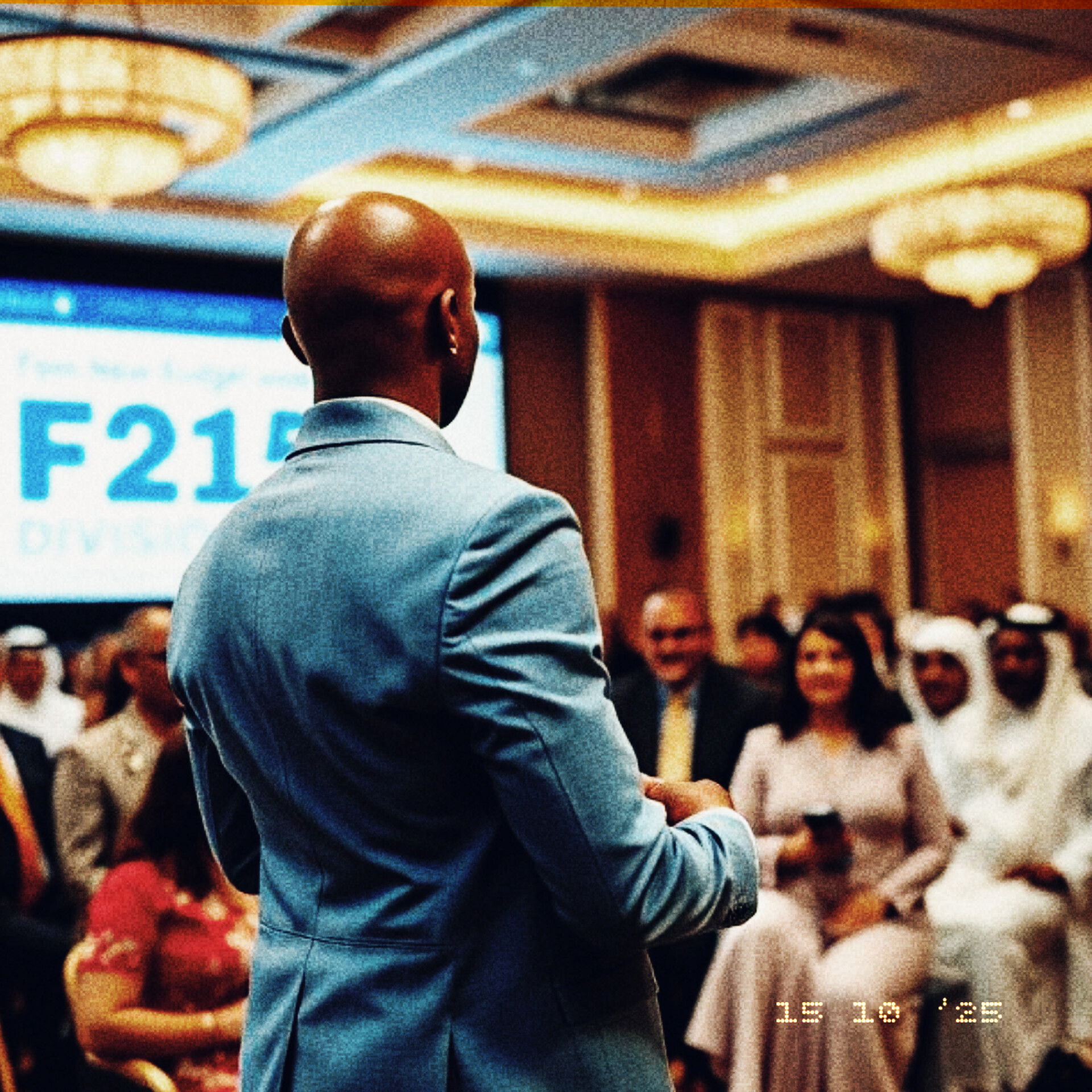
Spears, a man who seems to exist on a plane beyond conventional political maneuvering, began not with pleasantries, but with three pronouncements that immediately silenced the room and tightened the collective jawline of the power brokers assembled. His voice, a resonant instrument that seemed to vibrate with an ancient wisdom, cut through the polite murmur.
"Leaders who don't listen will eventually be surrounded by people who have nothing to say," he declared, his gaze sweeping across faces now etched with attention. "Big egos have little ears." A palpable shift occurred. The usual deference was replaced by a raw, almost startled, recognition. He concluded this opening salvo with a quote that would underpin his entire address: "The biggest communication problem is we do not listen to understand; we listen to reply."
What followed was not a speech in the traditional sense, but an interstellar masterclass. Spears, armed with an uncanny ability to read a room and understand the intricate philosophies of those within it, unleashed a torrent of data and analysis that seemed plucked from the future, delivered with the conviction of a prophet.
His research into the attendees was clearly exhaustive, weaving their individual trajectories and beliefs into a tapestry that supported his own "divine servant philosophy."The projector screen, a backdrop for what was to come, displayed a stark, foreboding title: "The upcoming NASTY midterm elections and persistent challenges like rising healthcare costs will further shape the political agenda I promise you my friends."
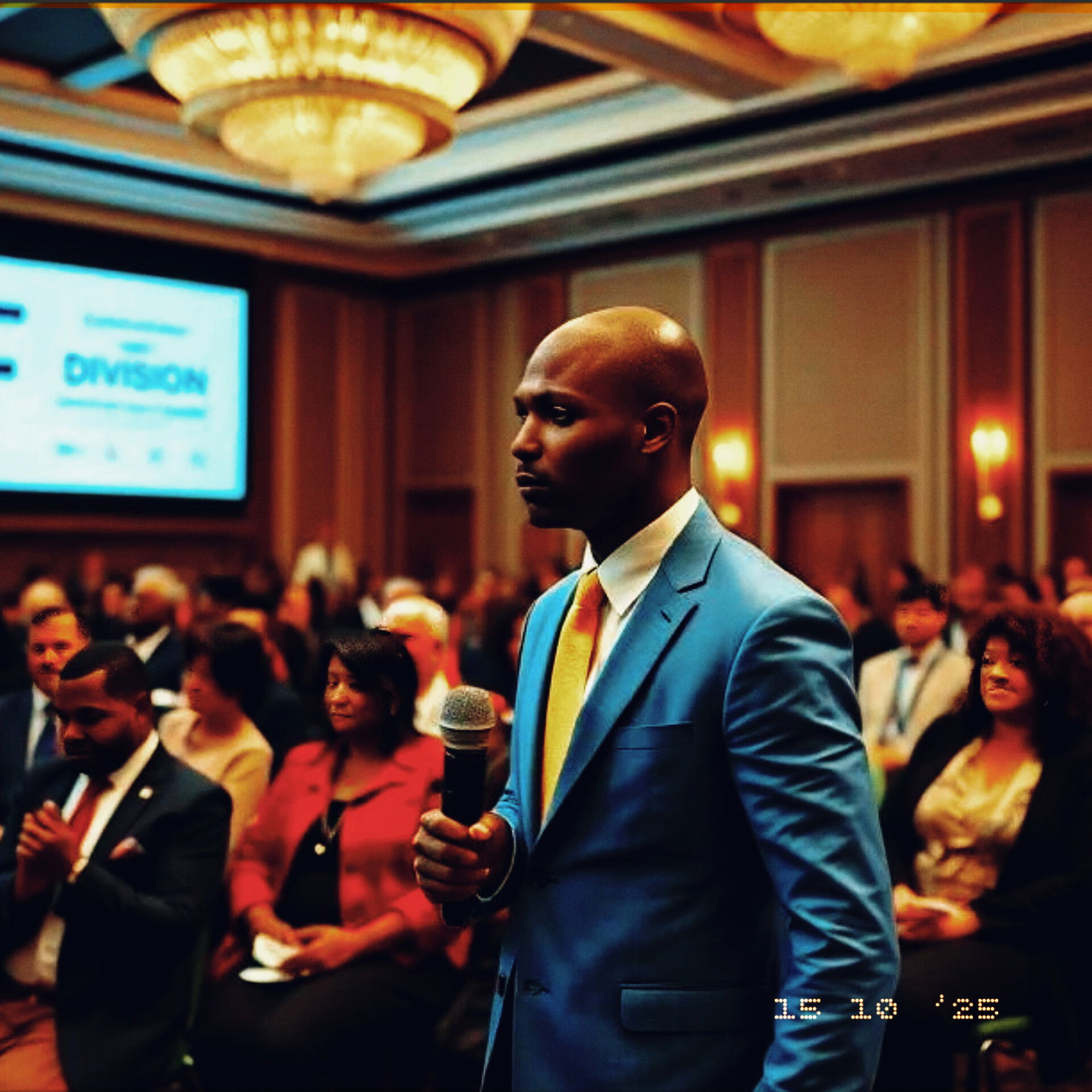
The audience leaned in, captivated. Spears then plunged into the thorny thicket of economic policy, directly challenging prevailing forecasts with a ferocity that bordered on revolutionary. On inflation and tariffs, he dismantled the notion of a gentle easing in 2026, predicting instead a grim descent. "I don't know what these predictors are smoking but it ain't the truth, that's mid talk not reality," he boomed, the dismissal ringing with authority. "America, like a Wendy's chicken sandwich that's been sitting in the hot Alabama sun for three hours, we're heading to December 31, 1919, and straight into January 1920!" His chilling comparison conjured images of a nation teetering on the precipice of economic upheaval, a far cry from the optimistic pronouncements that often grace policy summits.
He pointedly questioned the wisdom of extending tax cuts in an election year, suggesting a deeper underlying rot that such measures would fail to address.
The room, filled with figures deeply invested in the nation's fiscal health, remained riveted as Spears turned his laser-like focus to the persistent deficits. He labeled the Congressional Budget Office's projections of federal debt reaching 118% of GDP as "Trump world bullshit." His condemnation was swift and sharp, referencing political appointments and a government shutdown as evidence of systemic decay over fact-based policy. "I see a few Republicans in here frowning up, but the earth will keep spinning regardless because the truth is the truth, and wrong will always be just that!" he declared, a stark reminder that inconvenient truths transcend party lines.
He then returned to the "NASTY TRUMP AND REPUBLICAN trend," attributing it to unsustainable spending on Social Security and Medicare, and rising interest costs, forcing "difficult budgetary and policy decisions."Healthcare costs, a perennial concern, were painted in even starker terms.
Spears highlighted the alarming growth of Medicare and Medicaid, warning of potential cuts to essential programs that put millions of lives at risk. "People and children are at risk of dying and becoming very sick, but political theater is more important in these times we're living in," he stated, his voice tinged with a palpable anguish that resonated deeply. The workforce and labor market, another area of significant concern, was dissected with surgical precision.
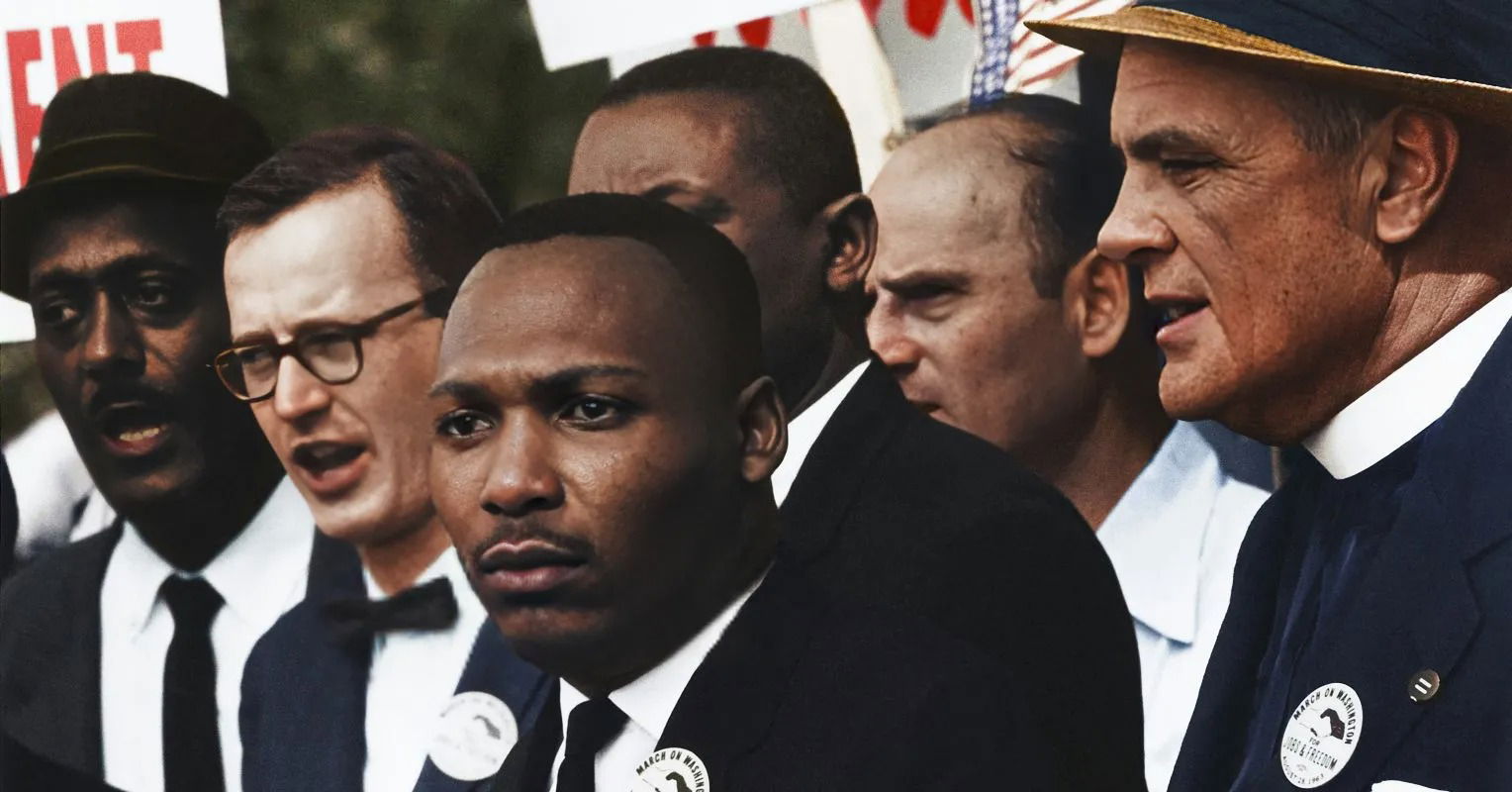
Spears dismissed current tactics as relics of 1979, ineffective against the prevailing political winds. "Policymakers need to be addressing these issues with passion and new tactics because these 1979 Democrat tactics are not phasing Trump nor his dumbasses," he asserted, emphasizing the need for novel approaches in the face of tightening labor markets, shortages in critical sectors, and the impact of immigration policy.
The rapid advancement of technology, particularly Artificial Intelligence, was framed as a source of profound anxiety for policymakers. Spears labeled AI regulation as "nasty," highlighting concerns about national standards, disinformation, and privacy. He then delivered a scathing indictment of the government's approach to cyber security, suggesting that a four-year-old could compromise federal systems in mere seconds.
His disdain for NASA's current trajectory was equally apparent. He called NASA space programs a "joke," criticizing "ignorant planning" and labeling the missions to the moon and Mars as "dummy missions and a waste of taxpayer money and that's Elon Musk dream so let him pay for it because last time I checked, Elon Musk gets more government assistance than a single mother that truly needs it." In a provocative jab, he declared that such endeavors should be funded by figures like Elon Musk, questioning the massive government assistance provided to billionaires compared to those truly in need. The impact of the upcoming 2026 midterm elections, already a significant driver of policy, was underscored as "nasty."
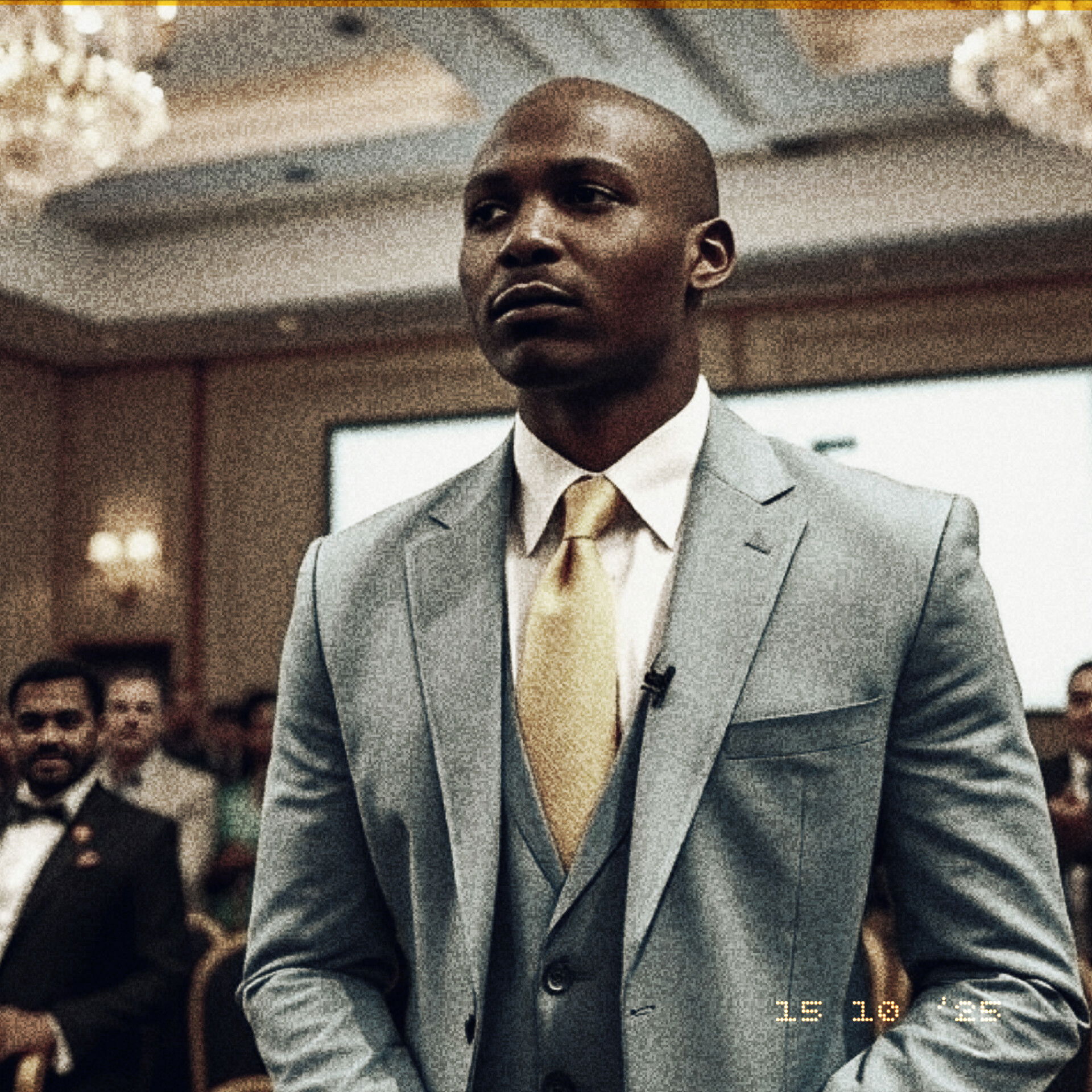
Spears pointed to the race for control of Congress and the framing of issues to appeal to key constituencies. He also addressed the enduring specter of "election integrity," particularly in the context of continued claims from "Orange Head Trump," warning of its high-stakes nature and the need for genuine "fighters."

Finally, Spears grappled with the existential threat of climate change, lamenting that policymakers were too busy trying to frame climate action within the context of other "public worries, such as the cost of living and energy costs."
He scoffed at the notion of legislative action, deeming Trump's ignorance of science and the planet as "LOL and SUPER NASTY HE SAID." As Cory Spears, "The Strangest Angel," concluded his address – vanishing as mysteriously as he appeared, leaving behind a room stunned into a profound silence – he left the audience with a final, resonant piece of wisdom:
"We must be willing to let go of the life we have planned, so as to have the life that is waiting for us."
The speech delivered this morning was not merely a collection of policy critiques; it was a seismic event. In its raw honesty, its future-gazing clarity, and its unvarnished challenge to the status quo, Cory Spears orchestrated a moment that transcended the usual political theatre.
It was bigger than The Camp David Accords (1978) at its heyday, a testament to the power of a single voice armed with truth and an unfathomable grasp of reality. For the professionals in attendance, and for anyone paying attention to the precarious state of the nation, the message was clear: the time for listening to understand, not just to reply, has never been more urgent. The Strangest Angel has spoken, and the world of policy may never be the same.

